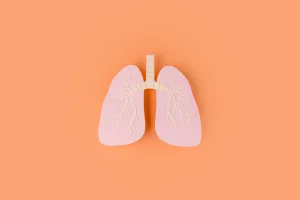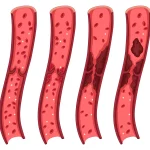Legionnaires disease is a severe lung infection that can be deadly. The legionella bacteria that cause legionnaires can infect anyone, but people over 50 and those with chronic lung diseases are at a higher risk for developing the infection. Symptoms of legionnaires disease include fever, chills, coughing, and shortness of breath.
If you think you have this disease, you must see a doctor immediately, as it can be fatal if not treated immediately.
There is no specific cure, but treatment focuses on relieving symptoms and supporting the respiratory system. In most cases, patients recover with no long-term effects. However, some people may develop pneumonia or serious lung complications due to the disease.

Causes of Legionnaires Disease
Many factors can contribute to the development of the disease. The legionella bacteria that cause the infection, Legionella pneumophila, are found naturally in freshwater sources like lakes and rivers. It can grow in artificial water systems, like cooling towers, hot tubs, and plumbing systems. When these contaminated water droplets become inhaled, they can cause a severe lung infection.
People can also develop legionnaires disease if they inhale aerosols or mists from infected water sources. This is why people who work in jobs that involve exposure to water vapors (like firefighters and agricultural workers) are at a higher risk of developing the disease.
There are many ways that Legionella can contaminate water systems. Sometimes, the bacteria can enter the water supply through cracks in the pipes or fixtures. The bacteria can also grow in dirty air conditioners or humidifiers. If these contaminated droplets become inhaled, they can cause a severe lung infection.
It’s important to note that you cannot get legionnaires disease from person-to-person contact. You can only develop the infection by inhaling contaminated water droplets.
Many factors can increase your risk of developing legionnaires disease. These include:
– Age: It is most common in adults over 50 due to the immune system weakening with age, making it more difficult to fight off infections.
– Chronic lung diseases: People with chronic lung diseases like COPD or emphysema are at a higher risk of developing the disease due to these conditions making it difficult for the lungs to clear out infections.
– Smoking: Smoking cigarettes can damage the lungs and make it more difficult to fight off infections, increasing your risk of developing Legionnaires.
– Weakened immune system: People with weakened immune systems are at a higher risk for developing the disease, including people with cancer, HIV, or diabetes.
– Exposure to water vapors: People who work in jobs that involve exposure to water vapors (like firefighters and agricultural workers) are at a higher risk for developing it.
Legionnaires Disease Symptoms
Symptoms of legionnaires disease can appear 2-14 days after exposure to the bacteria. The incubation period is usually 5-6 days. Legionnaires disease symptoms include:
– Fever: A high fever is one of the most common symptoms of Legionnaires disease. The fever may be 104 degrees Fahrenheit or higher.
– Chills: Many people with Legionnaires disease report feeling cold and chills, even in a warm environment.
– Coughing: A dry cough is another common symptom of Legionnaires disease. The cough may become wet as the infection progresses.
– Shortness of breath: Shortness of breath is a common symptom of Legionnaires disease because the infection causes lung inflammation.
– Muscle aches: Many people with the disease report feeling muscle aches and pains.
– Headaches: Headaches are also common in people with the disease.
– Fatigue is a common symptom because the infection causes inflammation in the body, which can be exhausting.
– Loss of appetite: Some people with the disease may lose their appetite due to the infection.
– Confusion: Confusion is a common symptom, particularly in older adults, because the infection can cause inflammation in the brain.
Legionnaires Disease Treatment
If you think you have the disease, you must see a doctor as soon as possible. Legionnaires is a severe infection that can be deadly if not treated promptly.
There are many treatment options. Treatment depends on the severity of the infection and the individual’s health condition. Treatment options include:
– Antibiotics: Antibiotics are the most effective treatment. The earlier the antibiotics are started, the better the chances of recovery.
– Supportive care: People with Legionnaires disease often need supportive care in addition to antibiotics, including oxygen therapy, IV fluids, or mechanical ventilation.




